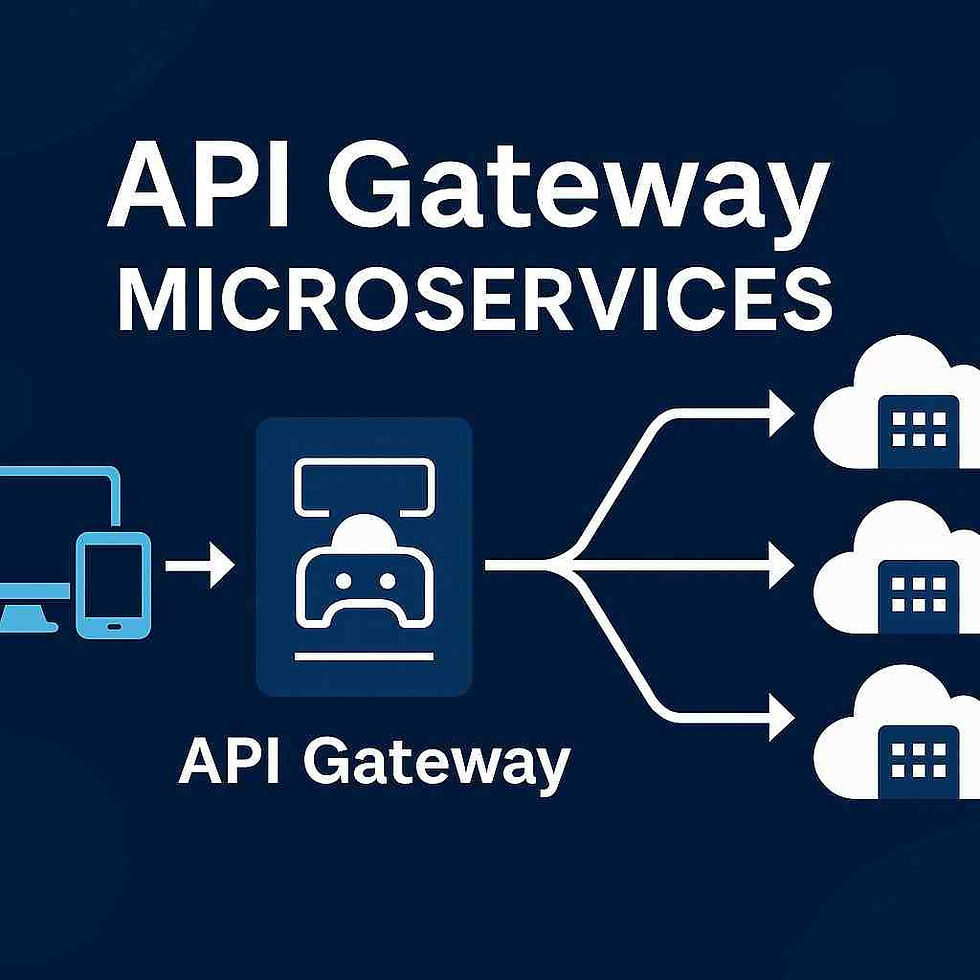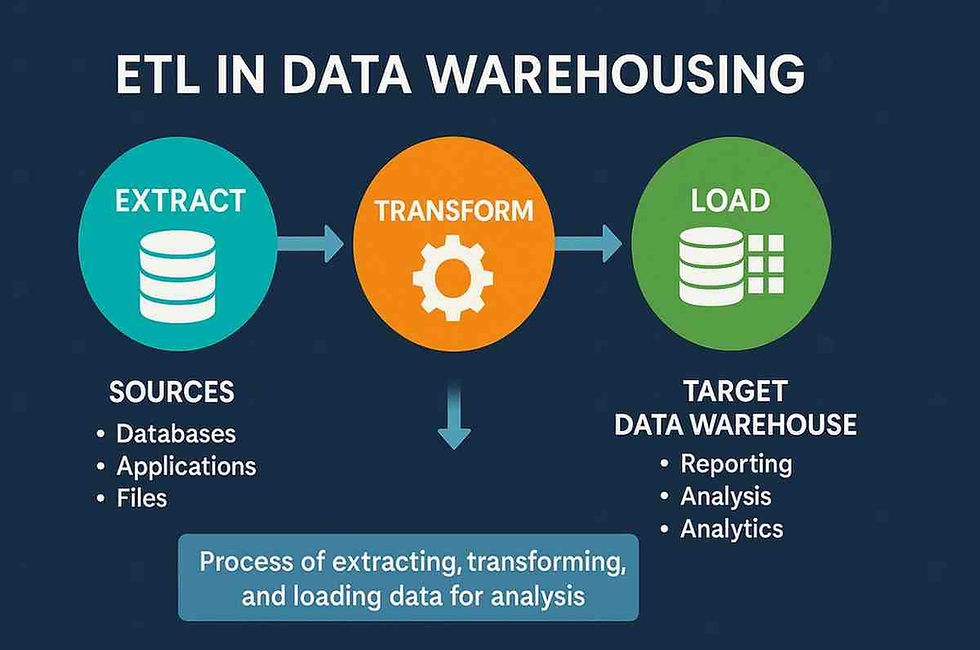AI SaaS: The Essential Guide to Scalable, Cloud-Based AI Solutions
- Gunashree RS
- Nov 4, 2024
- 7 min read
Introduction
AI SaaS (Artificial Intelligence as a Service) is reshaping how organizations deploy, integrate, and benefit from artificial intelligence technology. With AI delivered via the cloud, businesses now have unprecedented access to powerful AI tools without the need for in-house expertise or extensive hardware. AI SaaS enables companies to quickly adopt and scale AI-driven strategies, tackling complex challenges with data-driven insights, predictive analytics, and intelligent automation. This guide provides a comprehensive overview of AI SaaS, from key features and industry applications to the benefits it offers in a fast-paced digital world.
What is AI SaaS?
AI SaaS is a model of delivering artificial intelligence solutions through the cloud, often on a subscription basis. Unlike traditional AI deployment, which requires significant investment in infrastructure and specialized talent, AI SaaS offers a low-risk, scalable approach. With AI SaaS, companies can leverage advanced AI capabilities—like machine learning, natural language processing (NLP), and computer vision—remotely through an internet connection, allowing teams to utilize AI’s full potential regardless of location.
AI SaaS combines the benefits of cloud-based software with advanced AI capabilities, enabling companies to enhance decision-making, automate tasks, and improve customer engagement. This model provides flexible, pay-as-you-go access to high-performance AI tools without requiring companies to build or maintain complex systems in-house.

Key Features of AI SaaS
AI SaaS is defined by several key features that make it an attractive option for businesses looking to innovate quickly without major financial risk.
1. Scalability
AI SaaS platforms are built to scale according to a company's changing needs. Whether a business requires minimal resources or extensive AI capabilities, AI SaaS allows it to adjust its usage in real-time without needing additional hardware. This scalability makes AI SaaS a suitable choice for both small startups and large enterprises.
2. Cost-Effectiveness
Traditional AI solutions can require substantial initial investment in technology and skilled personnel. AI SaaS eliminates these costs by allowing businesses to pay only for what they use. The subscription-based pricing model turns capital expenses into predictable operational expenses, making AI solutions more affordable and accessible.
3. Accessibility
With AI SaaS, the tools and features can be accessed from anywhere with an internet connection. This accessibility fosters collaboration among teams, enabling them to analyze data, make data-driven decisions, and execute AI-powered strategies remotely, a significant advantage for today’s global and distributed workforce.
4. Continuous Updates
AI SaaS providers typically handle updates and maintenance, ensuring users always have access to the latest AI innovations. This relieves organizations of the burden of software upgrades and keeps them competitive with the latest advancements.
5. Seamless Integration
AI SaaS solutions are designed to integrate smoothly with existing software and infrastructure. Whether connecting to customer relationship management (CRM) systems, enterprise resource planning (ERP) tools, or other databases, AI SaaS platforms enhance existing operations and allow companies to optimize their workflow.
Importance of AI SaaS in Today’s Business Landscape
AI SaaS has quickly become a key enabler of digital transformation, helping businesses harness the power of data-driven insights, process automation, and improved customer engagement. Some of the primary benefits of AI SaaS for organizations include:
Enhanced Decision-Making: AI SaaS provides tools for real-time data analysis, giving businesses valuable insights into customer preferences, market trends, and operational efficiencies.
Increased Operational Efficiency: By automating routine tasks, AI SaaS allows employees to focus on higher-value activities, enhancing productivity and reducing human error.
Agility and Flexibility: The scalability and adaptability of AI SaaS enable companies to quickly respond to market changes, customer demands, and technological advancements.
Lower Barrier to Entry: AI SaaS makes sophisticated AI technologies accessible to organizations that may not have the resources or expertise to implement these systems on their own.
AI SaaS Applications Across Industries
AI SaaS is transforming various industries by addressing unique challenges and improving operational capabilities. Here’s a look at how AI SaaS is used across sectors:
AI SaaS in Retail
AI SaaS is redefining the retail landscape by offering tools for personalized customer experiences, inventory optimization, and demand forecasting. Retailers can use AI SaaS for personalized product recommendations, dynamically adjusting prices, and predicting buying trends based on data analysis. Additionally, AI-driven chatbots enhance customer service by providing instant support and improving satisfaction and retention rates.
AI SaaS in Financial Services
Financial institutions use AI SaaS for fraud detection, real-time transaction monitoring, and compliance automation. AI-driven analysis helps banks and financial service providers detect unusual activity in real-time, enhancing security while reducing false positives. Compliance with regulatory standards is streamlined through AI SaaS tools that automate report generation and monitor compliance risks, reducing the chance of penalties and enhancing customer trust.
AI SaaS in Manufacturing
AI SaaS solutions in manufacturing optimize production processes and equipment management. Predictive maintenance is a prime application, where AI algorithms predict equipment failures before they occur, reducing downtime and improving productivity. AI SaaS also supports quality control, using computer vision to detect flaws and maintain product standards. These capabilities help manufacturers reduce waste, increase efficiency, and deliver consistent quality.
AI SaaS in Enterprise IT
AI SaaS is instrumental in IT service management (ITSM) by automating incident resolution, improving system performance, and securing enterprise networks. Through AI analytics, enterprise IT teams gain insights into system health, allowing them to proactively address issues. AI-powered security tools also guard against cyber threats by identifying and neutralizing potential risks before they impact operations.
AI SaaS in Media and Entertainment
In the media industry, AI SaaS is used for content recommendation, audience engagement, and metadata tagging. These solutions analyze viewer behavior to recommend content that aligns with individual preferences, boosting engagement. AI also automates metadata tagging and categorization, making it easier to search and access content, which is essential in an increasingly competitive streaming landscape.
Benefits of AI SaaS
1. Rapid Deployment and Reduced Complexity
AI SaaS platforms are quick to deploy, allowing businesses to start using AI without the long timelines typically associated with on-premises software. Cloud-based deployment also simplifies the setup and reduces technical barriers, making AI accessible to organizations of all sizes.
2. Focus on Core Business Goals
With AI managed by a third party, companies can concentrate on their core activities rather than maintaining AI infrastructure. This allows businesses to direct their resources towards areas that create value for customers and drive growth.
3. Enhanced Data Security
Reputable AI SaaS providers implement advanced security protocols to protect data, ensuring compliance with industry standards and regulations. These protocols include encryption, access controls, and continuous monitoring, minimizing the risk of data breaches.
4. Support for Innovation
AI SaaS enables businesses to experiment with new AI-driven capabilities without the risk of extensive capital expenditure. This fosters innovation, as companies can trial AI applications and scale successful projects without upfront investments in infrastructure.
Challenges in Implementing AI SaaS
Despite its benefits, AI SaaS presents some challenges:
1. Data Privacy and Security Concerns
Since AI SaaS involves the handling of sensitive data, organizations must ensure that their provider adheres to stringent security measures. Compliance with data privacy regulations such as GDPR is essential for protecting customer information.
2. Dependency on Vendors
Relying on third-party vendors for AI solutions may limit an organization’s flexibility. Companies must carefully choose reliable providers to avoid service disruptions or potential vendor lock-in.
3. Integration Complexity
While AI SaaS aims to integrate smoothly, some businesses may face challenges in connecting AI SaaS solutions with legacy systems. Proper planning and technical support are essential for seamless integration.
Best Practices for Adopting AI SaaS
To maximize the benefits of AI SaaS, organizations should follow these best practices:
Identify Clear Objectives: Define specific goals for AI SaaS implementation to ensure that the solution aligns with business needs.
Choose the Right Provider: Look for providers with experience in your industry and a track record of delivering secure, scalable AI solutions.
Ensure Data Privacy: Prioritize AI SaaS providers who comply with data privacy regulations and have robust security protocols in place.
Invest in Training: Equip your team with the knowledge to use AI tools effectively, maximizing the return on investment.
Plan for Scalability: Choose an AI SaaS solution that can grow with your business and accommodate future AI needs.
FAQs
1. What is AI SaaS?
AI SaaS is a cloud-based delivery model for artificial intelligence solutions, enabling businesses to access AI capabilities without in-house development or extensive infrastructure.
2. How does AI SaaS differ from traditional AI?
Unlike traditional AI, which requires significant setup, AI SaaS is scalable, subscription-based, and can be accessed remotely, reducing costs and complexity.
3. Why is AI SaaS important for digital transformation?
AI SaaS supports digital transformation by providing tools for data-driven decision-making, automation, and enhanced customer engagement, driving operational efficiency and growth.
4. How does AI SaaS improve accessibility?
AI SaaS can be accessed from any device with internet connectivity, making it ideal for remote teams and distributed workforces.
5. What industries benefit from AI SaaS?
Industries such as retail, finance, manufacturing, IT, and media benefit from AI SaaS by enhancing customer service, improving efficiency, and increasing security.
6. Are there data privacy concerns with AI SaaS?
Yes, since AI SaaS involves sensitive data, companies must choose providers with strong security measures and data privacy compliance.
7. What are the common challenges of AI SaaS?
Challenges include data privacy, dependency on vendors, and integration with legacy systems, requiring careful planning and provider selection.
8. What are the best practices for AI SaaS implementation?
Define objectives, choose a reliable provider, prioritize data privacy, invest in training, and ensure scalability to maximize AI SaaS benefits.
Conclusion
AI SaaS is transforming how businesses implement and leverage artificial intelligence, providing a scalable, accessible, and cost-effective pathway to innovation. By streamlining AI adoption, AI SaaS enables companies to optimize operations, enhance customer experiences, and stay competitive in a digital-first economy. As industries continue to evolve, AI SaaS will play an increasingly essential role, equipping organizations with the tools they need to thrive in a data-driven world.
Key Takeaways
Scalable AI Access: AI SaaS enables flexible, cloud-based AI tools, making advanced technology available to businesses of all sizes.
Cost-Effective Innovation: AI SaaS reduces upfront costs, allowing companies to pay only for what they use.
Enhanced Customer Engagement: AI SaaS facilitates personalized experiences, improving customer satisfaction and loyalty.
Continuous Updates: Regular updates from providers keep businesses on the cutting edge of AI without additional maintenance.
Seamless Integration: AI SaaS integrates with existing systems, enhancing business processes without disrupting workflows.




Comments